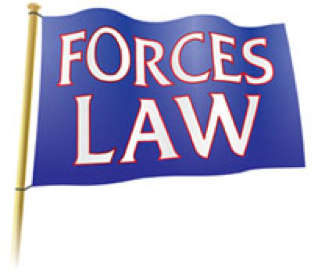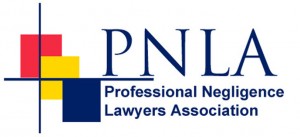Slowly but surely family law arbitration is taking off. Although it is relatively new to the UK, as at June 2021, there were already more than 180 family arbitrators who have qualified through the Institute of Family Law Arbitrators (IFLA) alone. And the head of our family law team, Dinshaw Printer (as well as being a serving District Judge) is 1 of them.
What is family arbitration?
Arbitration now provides a third alternative to collaborative law and family mediation as forms of alternative dispute resolution for legal problems arising out of divorce or relationship breakdown.
In a nutshell, it provides for the appointment of a third party – a qualified and accredited family arbitrator – to adjudicate your dispute and decide on the outcome.
In essence, it’s a bit like going to court to see a judge for a decision. In particular the arbitrator will want to see and potentially hear evidence about the background of the case in order to make the right decision. The arbitrator will also take into account both parties views.
Depending on the complexity of the issues involved, decisions can either be recorded on paper – or made orally at a hearing
What are the advantages of Family Arbitration?
We believe that arbitration is likely to eventually really take off – it’s a great addition to the other existing alternative dispute resolution approaches to family law, i.e. mediation and collaborative law.
But what are the real advantages of family arbitration?
-
Freedom to Select Your Arbitrator
Whereas in a court you can’t choose the judge, you can choose your family arbitrator and ensure you’re working with someone you feel comfortable with, as well as having far more flexibility and ensuring that the matter is dealt with in a quick and confidential manner.
-
The parties are in control
The parties keep control of the whole process – and can progress at their chosen speed – not at the speed the court dictates
-
It’s quick!
Waiting to find out which judge will settle your court case the day before the hearing can be nerve-wracking and judges often aren’t given sufficient time to read the case papers thoroughly. With family arbitration, you can select your arbitrator, giving you the peace of mind that not only do you have an experienced specialist conducting proceedings, but you have someonewho has had time to fully digest the details your case.
Your freedom to select an arbitrator means that you can choose one with a relatively clear schedule. Parties are then able to set the time-scale for proceedings. This means that you can know before your case starts how long it should take and make any personal plans accordingly. What’s more, unlike court, there is usually only no need for numerous hearings – one directions hearing and the final hearing is often all that is needed.
Getting to final hearing in a family court can easily take 6 to 9 months or maybe more. In contrast, you get to see an arbitrator subject to the arbitrator’s availability and your own lawyer’s preparation of the case, potentially in just a matter of weeks
-
It’s convenient
The place, date and time of any hearing, is set by you both and the individual family arbitrator – not by the court
The whole process is comparatively informal – it is easy to approach an arbitrator for further directions if they prove necessary, unlike court, which routinely requires a formal application [usually involving extra costs]
-
Family Arbitration provides security
Parties to the dispute have the freedom to build security provisions into the arbitration process thereby safeguarding confidentiality, as long as the arbitrator agrees that they are reasonable. For example, parties may wish to protect themselves from leaks about confidential information by keeping all papers in a secure place or limiting disclosure requirements.
-
Arbitration provides consistency.
The same family arbitrator deals with the case throughout – you don’t get passed from one judge to another. Sadly with the court system, you may often end up finally dealing with a judge who has had no prior involvement or real understanding of the case
-
You Could Save Time and Money
Family arbitration will incur certain costs, including venue hire, arbitration fees and other expenses. However, the flexibility to limit the scope of the case and the requirements for declaration of assets etc. can help to save you money. Furthermore, you will make a significant saving in time.
-
Parties can restrict the issues that are considered in arbitration
In contrast to court based proceedings court, you can bring any aspect of the dispute to arbitration – unlike going to court, where the whole issue has to be looked at.
However, the arbitrator does have certain limitations. They cannot bind those who are not party to the agreement, meaning that third parties cannot be affected by their judgements. They are therefore unable to demand documents from third parties or impose interim injunctions which will bind them.
Is family arbitration binding?
Both parties agree in advance that the arbitrator’s decision is final – a binding ruling known as an “award”.
Awards made by an arbitrator must be respected in the same way and carry the same longevity as judgements made in court. Although these may be open to review and can be appealed against, parties can be sure that the arbitrator’s decisions will be fully implemented.
However, the arbitrator does have certain limitations. They cannot bind those who are not party to the agreement, meaning that third parties cannot be affected by their judgements. They are therefore unable to demand documents from third parties or impose interim injunctions which will bind them.
The family arbitration process
So how does it work?
The family arbitration process allows couples to choose a venue to hold talks about their issues and a Family Arbitrator (who in most cases will be a family lawyer with the relevant additional qualifications).
This Arbitrator is the job of supporting negotiations between the two parties, considering the information and evidence that comes out during discussions, before making a final judgement which will be legally binding and final (like that of a court judge).
Once appointed, this Arbitrator is locked in to the case. That means the same arbitrator keep deals with the case throughout and continues to supervise proceedings until a final agreement is reached between the couple.
Arbitration in Family Law Disputes – common uses
Amongst the most common common examples of matters settled using family arbitration are the following:
• Financial issues arising out of divorce, and in particular the division of assets, pensions and savings
• Inheritance issues
• The possible division of proceeds from the sale of the matrimonial home
• Financial provision for any children involved
There is no doubt that family arbitration will help many couples separate faster, more cost effectively and more amicably than they may have done in court. It is worth noting that legal aid is not available for such proceedings but the positives nevertheless appear to outweigh the negatives.
Our approach to alternative dispute resolution for family law disputes
Here at Bonallack and Bishop, our lawyers strongly support the use of the three types of alternative dispute resolution for family law problems – mediation, collaborative law and the new option of family arbitration. However, it is worth pointing out that family arbitrators are still relatively few and far between – and so for many people, mediation or collaborative law may prove a more practical solution at this stage.
Click here to read more about family mediation and collaborative law
Call our specialist Divorce Solicitors today
We are absolutely committed to alternative dispute resolution as approaches to family law problems. That’s why three of our team are trained as family mediators and one as a collaborative lawyer.
For free initial phone advice and a free 30 minute interview about any aspect of family law, contact our specialists today.













